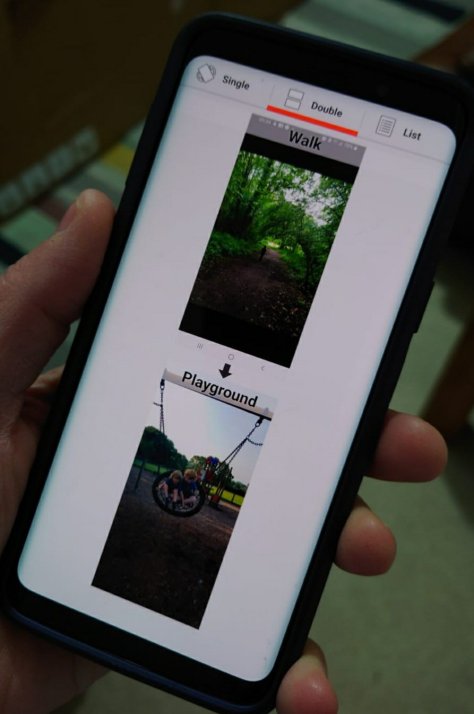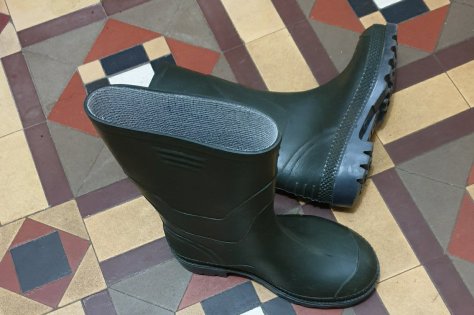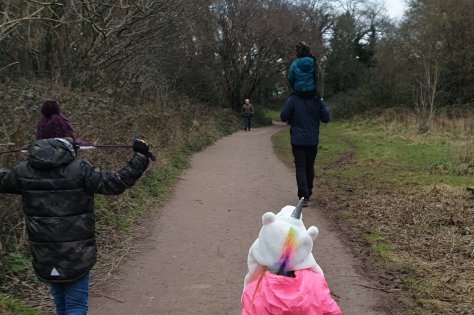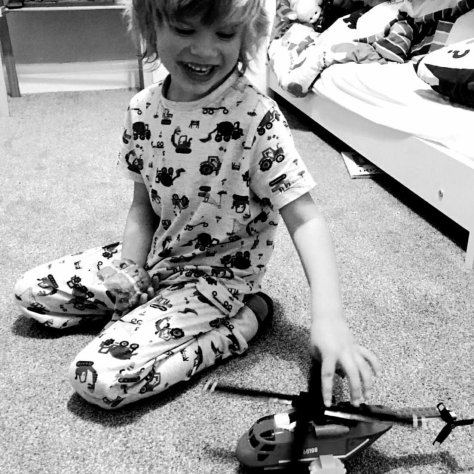I remember standing in a gymnastic hall. All the equipment surrounded me, the parallel bars, beam, trampolines and other strange equipment that I don’t know the name of.
Others were energetically lunging themselves into the foam pit, or doing fancy somersaults on the trampoline.
Kids ran around us joining in with the toddlers open floor session. Some joined in with the songs and their corresponding actions that were being enacted on the open floor. Others were energetically lunging themselves into the foam pit, or doing fancy somersaults on the trampoline.
As parents followed their children around the different pieces of apparatus, I could overhear a parent next to me. Her little girl was about two, and carefully tackling the well thought out obstacle course that had been setup by one of the instructors. Her mother held her hand as she walked over the soft mat up to the low ground-level beam. “Come on darling” she said “you can do it”.

The little girl was nervous but reluctantly put her first foot forward, the only stability she had was from her arms which she spanned out on either side of herself to distribute her weight. As she took each step, she came closer and closer to the other end of the beam. Her mother slowly walked next to her, judging if she was going to make it, ready to grab her hand if the wobble became a potential slip or fall.
The mother watched her daughter’s every step, but she only watched with one eye, because her other eye was on the rest of the room. She checked to see if anyone else was witnessing this achievement in the making. Her daughter was in her element, she was reaching a milestone worthy of an applause.
As the little girl took her last step and accomplished the great feat, her mother lifted her in the air, and slightly louder than required said “Well done, you are amazing” then swung her around and looked for the next opportunity for success.
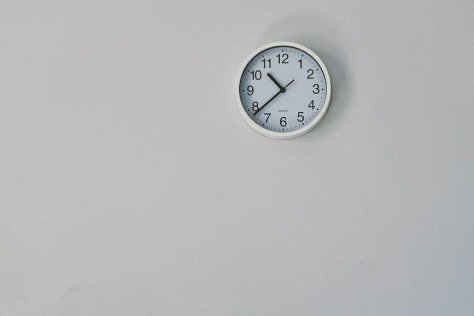
I turned away from this celebratory event and stared down at Rhys. He sat on the floor oblivious to all the people, children and noise around him. I followed his line of slight across the wide open space and up the wall about ten meters away from him. Half way up was a white clock, the numbers one to twelve around the edge.
Out of all the activities, entertainment, and gymnastic equipment, he had chosen the item that had the least relevance to the situation, but an item that meant more to him than any of the things that surrounded him.
I had no hope of getting Rhys to walk a beam like that little girl. I had no ability to even get him to engage with the room. The clock on the wall was his only interest, not the ability to display his achievements of somersaults or dismounts off a low beam.
Since this situation about five years ago, I have overheard many milestones being celebrated by parents. They are being celebrated in parks, play centres and all across social media. A video of a child’s first words, or a little boy initiating a pee all by himself behind a tree because he knew he needed to go!

Rhys is accomplishing so many things, but often I feel that I don’t have enough words to describe the mountain we have climbed to achieve them. It is so hard to explain the feeling when Rhys runs down an unknown path for the first time, or he says “drawing”, taking a pen in his hand with no reluctance, or he understands a simple command like “pass me that book!”
… to others it just doesn’t seem to be as bigger deal to them as it is to you.
It is a feeling of wanting to shout it from the roof tops. It is not like the mother in gymnastics who secretly invites you to share in the accomplishment. In contrast, you want to fly a banner through the sky and publish it in a newspaper. But to others it just doesn’t seem to be as bigger deal to them as it is to you. Their children did all these things as part of their ongoing development. They are not milestones they recorded or celebrated. They just happened!
But that doesn’t matter because they are not their child’s achievements. They are Rhys’ achievements. They are the result of hard work, and I have realised that I don’t need the acceptance from others to confirm that they are worthy of a bottle of champagne, because I know what we have gone through to achieve them. He may have taken a bit longer or a lot longer to get there. But it is not a race, we all do it in our own time.
There is no need to look to others for acceptance that something is worthy of celebrating. We all know that feeling inside when something remarkable happens, and when I look at Rhys, I know deep down he is celebrating with me too.
🕝🕑🕧🕣🕞🕜🕟🕢🕥🕙🕦🕚🕠




